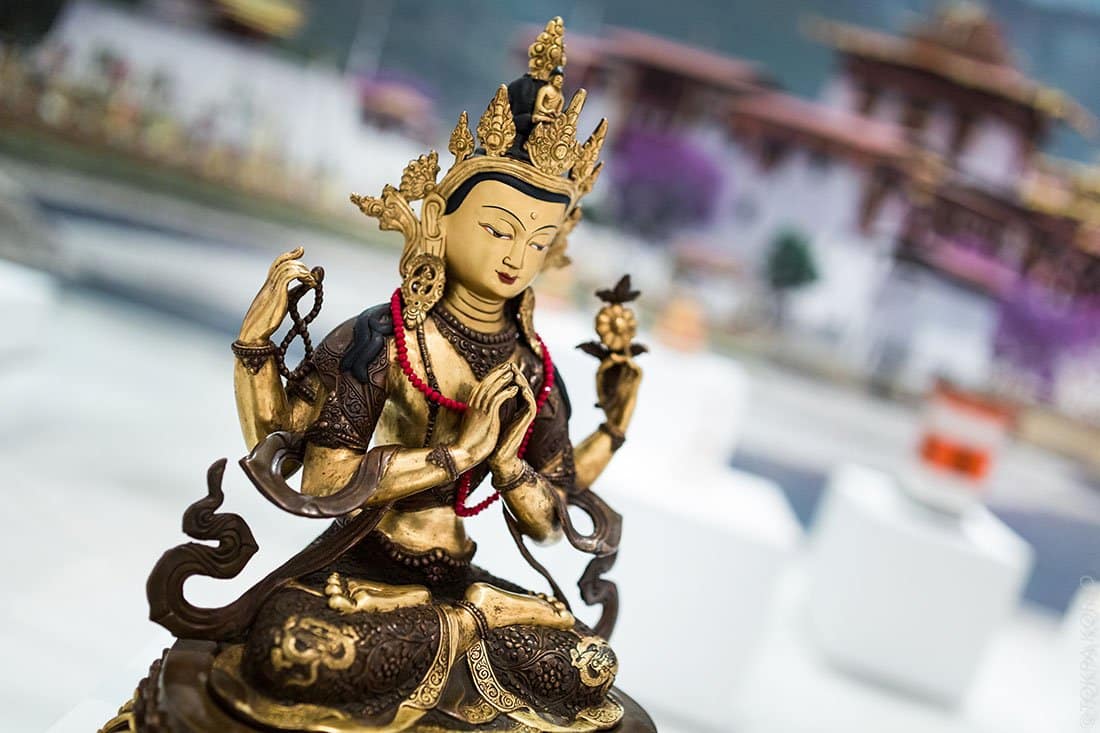A Brief History of Meditation
Category: Types of Meditation

Meditators swear by the practice’s ability to bring enduring positive change into their lives. But where does meditation come from? What are its origins? Who thought it up?
We don’t really know. The earliest records of meditation practice date from approximately 1500 years BCE (Before Common Era). It seems to have been an integral part of the earliest forms of the Vedic, or early Hindu, schools in India. In the 6th to 4th centuries BCE, the Chinese Taoist and Indian Buddhist traditions began to develop their own versions of meditation practice. Further west, early forms of meditation practice were developed by such notable figures as Philo of Alexandria, the Desert Fathers of the Middle East, and Saint Augustine.
The origins of meditation
The English word “meditation” stems from meditatum, a Latin term meaning “to ponder.” Although we can’t know when, exactly, people began to meditate, experts agree that the practice probably began many thousands of years ago, before the birth of modern civilization. When scholars look to establish the origins of meditation, they first have to decipher ancient texts and recorded hieroglyphs to find references to this discipline. Several archaeological findings suggest that hunter-gatherers were practitioners of some forms of meditation, as were early shamans. Their knowledge was passed down orally from one generation to the next, helping to lay the crucial foundations of modern meditation.
It can be difficult to pin down the origins of meditation because there are so many practices that fall under the “meditation” umbrella. Is it mindfulness? Contemplation? Communion? Chanting? Trance? See What are the Different Types of Meditation to understand the variety of practices of what might be meant by the term “meditation.”
Meditation in the East
Although many forms of meditation can be found in ancient religious traditions around the world, the practice as a formal component of a spiritual path is probably most closely associated with Buddhism. The Buddha, who lived and taught in Southeast Asia about 2600 years ago, founded an experiential path that inspired generations of practitioners to sit in mindful awareness and breathe their way to lasting peace. According to his teachings which later became known as Buddhism, meditative concentration is one of three trainings that when practiced together result in awakening, or enlightenment. The other two are proper ethical conduct and the wisdom of seeing things as they truly are.
Men and women who gained insight and wisdom by putting the Buddha’s teachings into practice taught others. And seekers would travel to learn from great teachers who often lived in cultures far removed from their own, then bring the teachings back home. At one point, people were practicing some form of Buddhist meditation from the territories of modern-day Afghanistan to Mongolia and from Japan to Indonesia. Buddhism is known to be a spiritual practice that has adapted to the cultures of the regions where it has taken root.
An example of this is Zen meditation. In the 7th century, the Japanese monk Dosho traveled to China where he studied Buddhism under the great master Hsuan Tsang. Upon returning to Japan, he opened a meditation hall and started teaching a form of sitting meditation that became known as zazen. This has given rise to generations of Japanese monks and nuns whose primary practice is sitting meditation.
Meditation moves west
In modern times, the art of meditation has mainly been associated with Asian spiritual traditions such as Theravada, Zen, and Tibetan Buddhism, to name but a few. Western interest in Eastern religions and philosophies seems to have begun in earnest in the 19th century due to colonialism and improved means of transportation and communication. In those days it was mainly the domain of scholars and missionaries.
Eastern philosophy caught the attention of western “seekers” and artists as early as the late 19th century, but it wasn’t until the mid-20th century that meditation became popularized in the West. This period saw the arrival of meditation masters from the East who were invited to share their skills and knowledge with interested students. There were also many western students of mindfulness who were able to travel east and train under great masters in India, Thailand, Burma and other Asian countries, then bring their understanding of mindfulness and awareness practices back home and share it.
One of the most influential figures in the sphere of mindfulness today is Dr. Jon Kabat-Zinn, who founded the Center for Mindfulness at the University of Massachusetts Medical School in 1979. His program, MBSR (Mindfulness Based Stress Reduction), has been instrumental in bringing the benefits of mindfulness practice – without any religious overtones – to the public attention and scientific communities worldwide.
Since its origins nearly 30 years ago, MBSR has entered the public consciousness. “Mindfulness” seems to be everywhere nowadays. But even though all sorts of mindful – including “mindful pants,” “mindful snacks” and “mindful juice bars” – are there for the sampling, nothing can beat the good old mindful of being fully present with what is.






